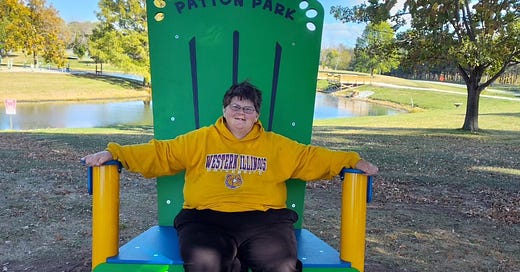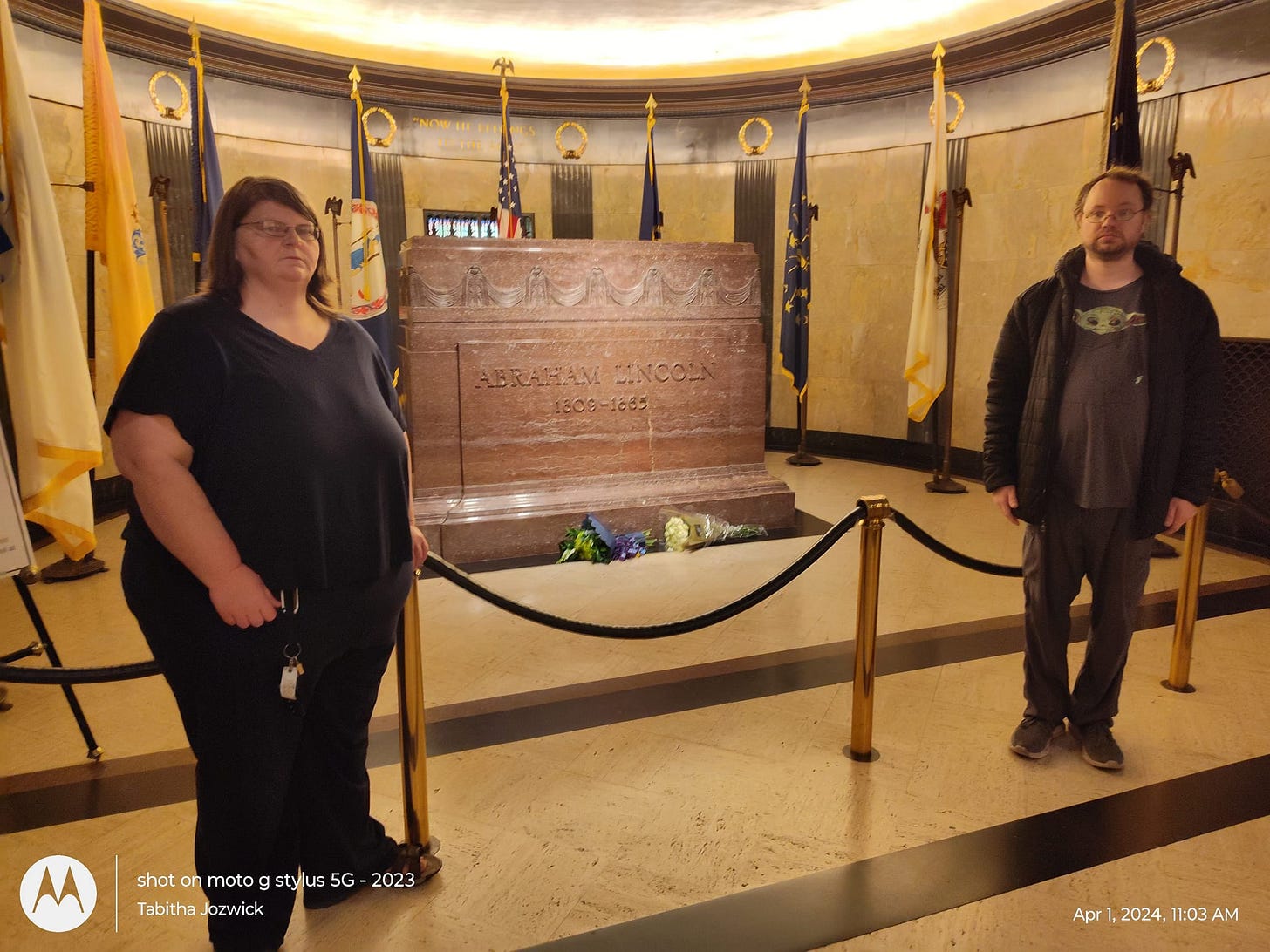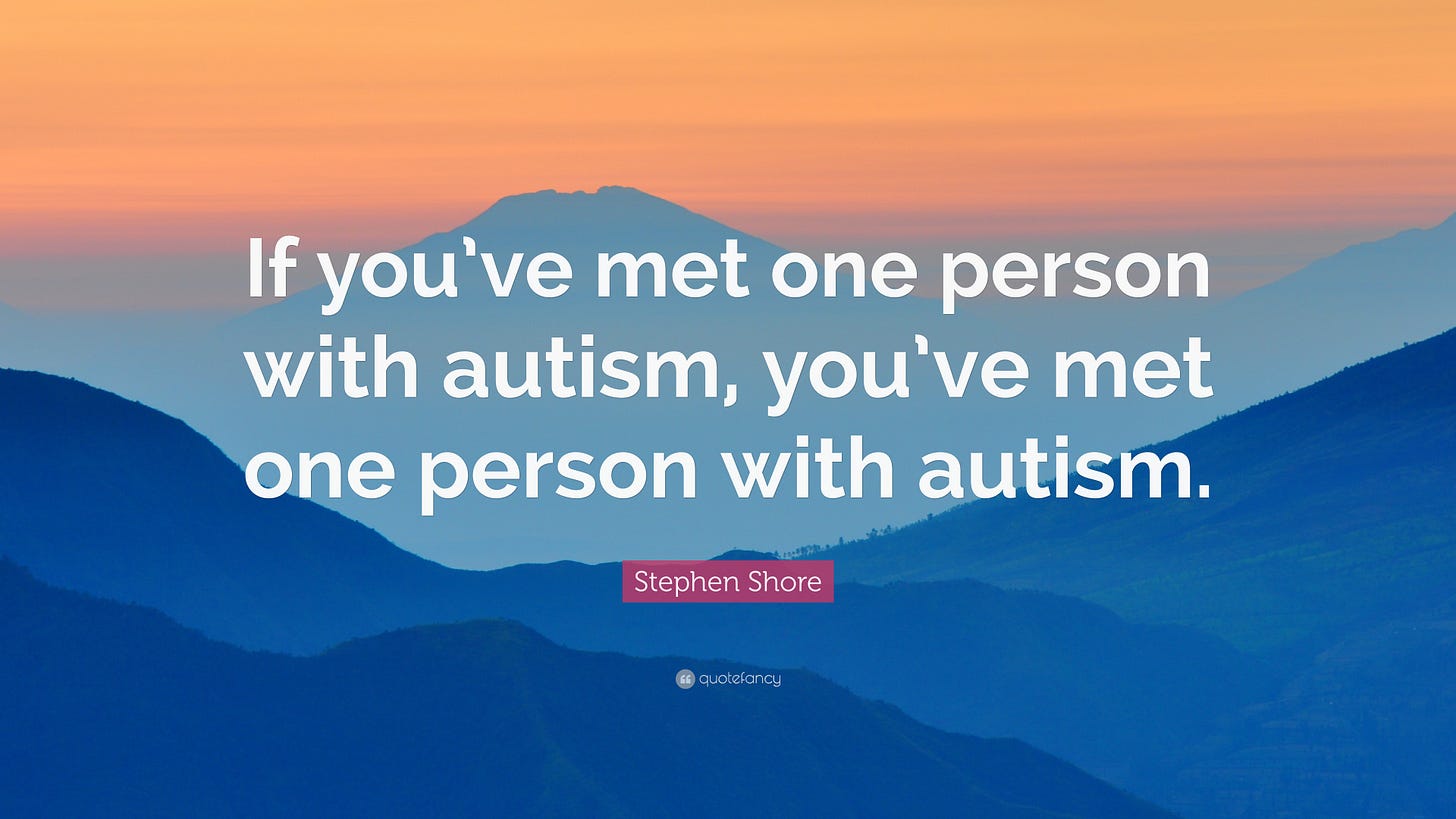A journey to advocacy
Tabitha came of age as autism came into our collective awareness; here’s her story.
When we were growing up, we didn’t know the word “autism.” All we knew were differences.
Tabitha Cooper Jozwick was different, by her own parents’ telling. They brought their baby girl home from the hospital, and immediately she slept through the night.
Her mom tried to get answers from doctors, to learn why her daughter’s development seemed different than other kids. It wasn’t until Tabi was 4 years old that she received a full evaluation. It was a lot for her. She got overwhelmed and upset.
The nurse, without making a diagnosis, suggested institutionalizing her. Absolutely not. Her parents were done with this. Years later, when Tabitha would graduate high school with honors, her mom wanted to find that nurse and send her the honor roll certificate. How lucky were they — they didn’t listen to that nurse.
I write a lot in this space about understanding different perspectives. This week, and during autism acceptance month, I wanted to highlight a woman who I grew up with and who inspires me — Tabitha. Today she’s working towards advocating for others who have autism. Her path there has not always been easy.
Growing into an advocate
It wasn’t until college Tabitha received her diagnosis: She has autism, and specifically Asperger’s syndrome. Had she been born a boy, Tabitha thinks the diagnosis would have come earlier (girls are less likely to be diagnosed with autism). But given her time and place of birth — we grew up together in Galesburg, Ill. in the 90s — she would have to wait.
That didn’t serve her well. If she knew the diagnosis, and could understand her learning disability and opportunities, it would have helped her at a younger age. She struggled with confidence, not understanding her disability when she was young.
Tabitha’s early memories include speech therapy. Her speech teacher used idioms to help prod her speech development. And she was on an IEP, an individualized education plan, which was the rare opportunity for her parents to meet with educators to talk about her development.
Starting in eighth grade, Tabitha was basically on her own, she received no more educational services. And she sank or swam based only on her own perseverance. That’s something that struck me at this point in the interview. Tabitha has always been smart. Capable of advanced math, history and English. But getting the right job that can build on those talents: That’s all been on her. We haven’t as a society best cultivated and directed our talent, and it’s especially clear with those whose disability benefits are supposed to be helping.
Tabitha’s symptoms were severe enough to qualify for supplemental security income, something that she fears could become increasingly important, and something she fears that could be cut.
Tabitha is now living in Macomb, Ill.. She’s happily married (celebrating her anniversary later this week). She’s quick to point out her journey is only hers.
“There's a quote by Stephen Shore that says when you meet one person with autism you meet one person with autism,” Tabitha says. Stephen Shore is a professor, who himself has autism.
Federal debate
Last week at a televised White House Cabinet meeting, Robert F. Kennedy Jr. announced new rates of autism in the US show a continued upward trend, he said one in 31 children are being diagnosed with autism. In 2020, according to the CDC, that number was one in 36.
There’s fierce debate over whether it’s an increase in incidents or diagnosis. There’s also fierce debate, driven in part by retracted studies that claimed inaccurately that vaccines cause autism, about the cause of autism.
At the cabinet meeting last week RFK Jr. promised President Trump that Health and Human Services would be doing a comprehensive report on the cause, working with doctors worldwide, he claimed, that he would present in September.
Tabitha already knew that was the focus of the administration. “There are some advocates who do not want to find the cause or some that do. So it just varies on each individual whether they want to find the cause or not. To me personally, I think it’d be interesting to figure out what the cause is…” Though she says current studies point to a genetic factor (she has family members who share her diagnosis).
Equally important, she says, is that the focus should not be on eliminating autism altogether (some of the most brilliant minds today are that of those on the spectrum), but making the lives better for those who have autism. And that requires resources and information. Resources and information that she has seen altered, shifted into different departments. It makes it difficult to find the right resources and to get the care required.
A different era for autism awareness
Social media and online resources are so very different from what we had access to growing up. In our era, there were door to door encyclopedia sales (I wanted that Encyclopedia so badly). Now kids have resources at their fingertips, on their phones (often no purchase required). But Tabitha has seen both the good and the bad in that.
In a culture of influencers, Tabitha has seen a growth of self-diagnosed autism, with bad information. And some who believe autism should be an identity, instead of a disability. For Tabitha this is where she draws the line. It has not been her identity, it is her disability, she said. One for which our society should support therapies and educational accommodations, for each person to flourish.
Without a diagnosis, or with bad information, that's a very hard journey. Tabitha knows this from personal experience. After graduating with honors from high school she went to college and had her share of struggles before she was diagnosed. With a diagnosis came understanding; it allowed her to find out so much more about what she faced. It also came with a confidence she hadn’t previously known.
It’s still not her identity. Tabitha is an advocate, she’s a daughter, a sister, a wife. And she has a disability, she says. One that she shares with many, but with experiences that can only be her own.
To learn more about Autism Acceptance Month: https://autismsociety.org/







